Section 13: EDUCATION - RESEARCH - DEVELOPMENT



THE VOICE OF INTERNATIONAL LITHUANIA
|
VilNews has its own Google archive! Type a word in the above search box to find any article.
You can also follow us on Facebook. We have two different pages. Click to open and join.
|
Wed, 5th September, 2012 - Posted by - (2) Comment
|
New school year – Lithuanian schoolchildren have again put on their uniforms. Laughter and playful children fill the streets, squares and classrooms. Lithuanian school has undergone many changes since the Soviet Union's fall, but many feel that improvements are too slow. Write to us if you have an opinion on what should be done with education in this country! |
 |
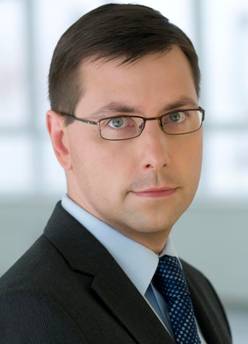
Minister of Education and Science
Gintaras Steponavičius
By: Minister of Education and Science, Gintaras Steponavičius
Starting the new school year, our focus of attention remains the same – fostering innovation and creativity.
Wed, 5th September, 2012 - Posted by - (1) Comment
Wed, 5th September, 2012 - Posted by - (10) Comment
When Donna heard that her English teacher was going to give daily
quizzes on Harper Lee’s novel To Kill a Mockingbird, she panicked;

By: Dr. Boris Vytautas Bakunas, PhD
When Donna heard that her English teacher was going to give daily quizzes on Harper Lee’s novel To Kill a Mockingbird, she panicked. “I can’t take tests,” she blurted out. “My mind just goes blank.”
On test days, twelve-year-old Andrew could hear his heart pounding the moment he walked through the classroom door. As his muscles tensed and his stomach churned, he felt increasingly anxious and confused.
Wed, 5th September, 2012 - Posted by - (0) Comment
Are you of Lithuanian descent, living abroad?
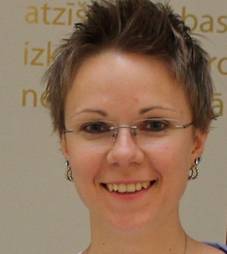
Darja Lyzenko
By Darja Lyzenko, SIC
darja.lyzenko@sic.lt
Together with Vilnius University our research company is currently carrying out a research study about the language skills and usage of Lithuanian descent people residing outside of Lithuania. We are looking for Lithuanians who (1) currently live somewhere other than Lithuania for more than 3 years, also (2) who left Lithuania either by themselves or with their parents, or (3) whose parents or grandparents left Lithuania before they were born, i.e. who were born outside of Lithuania.
Wed, 5th September, 2012 - Posted by - (2) Comment
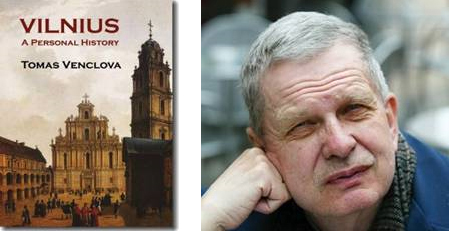
Excerpt from Tomas Venclova’s book “Vilnius a Personal History”.
I entered the University shortly after Stalin’s death. I was sixteen years old, one of the youngest students there. Times had somewhat improved―become more “vegetarian,” to quote Anna Akhmatova. The war against the anti-Communist Lithuanian and Polish partisans was coming to an end, most of them having been killed. The deportations had stopped, and people―though not all, by far―were coming back from Siberia and the prisons. Yet grim Soviet conditions still prevailed.
Wed, 5th September, 2012 - Posted by - (0) Comment

Baltic Management Development Association (BMDA) offers all Baltic Institutions to present news in their monthly newsletter. The newsletter includes information about international BMDA network news and events that is placed in interactive BMDA IT portal www.bmda.net
If you would like to have news about you and your institution in BMDA Newsletter, all you have to do, is place the news in BMDA IT portal.
Wed, 30th November, 2011 - Posted by - (3) Comment
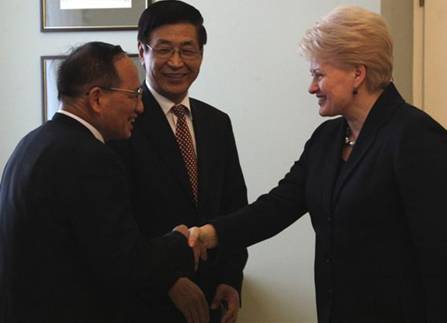
President Dalia Grybauskaitė with Vice Presidents Qu Wenchu and Lu Yong of the Chinese IT giant "Huawei" - to discuss cooperation and investments in the sphere of innovations. The President said the cooperation with "Huawei", is already yielding mutually beneficial results. Vilnius University, "Omnitel" and "Huawei" this week opened an information technologies research laboratory which they believe will become a centre of innovations for the Baltic countries and Eastern Europe.
Text: Aage Myhre, Editor-in-Chief
aage.myhre@VilNews.com
There has been expressed skepticism about some of the so-called foreign investments (FDIs) that have taken place in this country over the past two-three years, as they largely have been paid by Lithuania itself, meaning the country's tax payers, partly as a hollow play to the gallery with the intention of putting the government's results in this field in better light. This week's announced partnership with China appears different. More pragmatic, real and sustainable. I consider the new Chinese-Lithuanian IT Innovation Centre at Vilnius University a step in the right direction!
Lithuania should create more 'basketball business'
The cooperation with China started when Lithuania’s “Omnitel”, the leading Baltic telecommunication company, owned by Scandinavian TeliaSonera, invited Chinese “Huawei”, a leading global information and communications technology (ICT) solutions provider, to a cooperation with the aim to extend Omnitel’s network ahead of the European basketball championship (EuroBasket 2011) that took place in Lithuania earlier this autumn. The cooperation led to the successful deployment of a commercial 1800MHz LTE network for Omnitel to serve the championship.
Omnitel had long been planning an upgrade to its existing network in order to meet increasing data demands, and in May of this year, Huawei was exclusively awarded the Omnitel contract for LTE deployment and GSM/UMTS radio access networks expansion across all of Lithuania.
At EuroBasket 2011, Huawei provided Omnitel with its world-leading Single RAN LTE solution as well as with radio access and transmission networks. As a result, the LTE network was able to achieve downlink speeds of 85Mb/s, making it the fastest mobile broadband network in Lithuania.
The excellent performance of the LTE network during EuroBasket 2011 was an important step in the commercialization process of the Baltic region’s mobile broadband network.
Basketball is known as Lithuania's second religion (after Catholicism). The collaboration between Omnitel and Huawei shows that it also can lead to business and development cooperation. This week's IT Innovation Centre is a tangible proof of that. So why not think more in this direction? There is probably much more of business and FDIs that can be created around the national sport…
The President plays well with business and science!
"Lithuania is among the leading players in the European IT and telecom market. We have not only the most advanced infrastructure but also highly qualified professionals. "Huawei" is one of the most innovative companies in the world. Cooperation with this company will serve to promote more rapid development of innovations as it will open new possibilities in the global IT market," President Dalia Grybauskaitė said at a meeting with the Chinese delegation in Vilnius this week.
The President during her visit to China in October last year participated in the Shanghai World EXPO and agreed with representatives of "Huawei" to organize the training course for Lithuanian students in this company and to establish an information technologies research centre in Lithuania.
In July, ten IT students from Kaunas University of Technology, Vilnius Gediminas Technical University and Vytautas Magnus University already underwent a training course in the Chinese company. This week Vilnius University, "Omnitel" and "Huawei" open in Vilnius a research centre of information technologies the activities of which will include the implementation of research programs, traineeships for researchers, and the development of modern technologies.
Dalia Grybauskaitė also stressed the importance of economic cooperation between Lithuania and China. The shuttle train "Saulė", which was launched last month, connecting China, Kazakhstan and Lithuania, should enhance the bilateral business relations even more, she said.
The President plays truly well with the business and the scientists in this case. That bodes well for a better and more advanced ‘Lithuania of the future’!

In May this year an initial agreement for the establishing of a joint research laboratory at Vilnius University was signed between (L/R) Antanas Zabulis, President of „Omnitel“, Professor Benediktas Juodka, Rector of Vilnius University and Ye Yong, Country Manager for the Baltics of „Huawei Technologies Co”.
Wed, 2nd November, 2011 - Posted by - (0) Comment
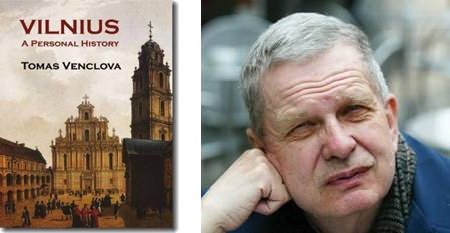
Excerpt from Tomas Venclova’s book “Vilnius a Personal History”.
I entered the University shortly after Stalin’s death. I was sixteen years old, one of the youngest students there. Times had somewhat improved―become more “vegetarian,” to quote Anna Akhmatova. The war against the anti-Communist Lithuanian and Polish partisans was coming to an end, most of them having been killed. The deportations had stopped, and people―though not all, by far―were coming back from Siberia and the prisons. Yet grim Soviet conditions still prevailed. Polish professors from the prewar era had been ousted―“repatriated” was the official term―and there were scarcely any Lithuanian professors left. Some ended up in America, others in concentration camps or six feet under, and still others were simply not permitted to teach. In the best of cases, they were replaced by high school teachers (most of them very intimidated); in somewhat worse cases, by young careerists; and in the worst of all cases, by individuals who had sent dozens of people into slave labor. Among this third group were many recent arrivals from Russia, who were more successful than the locals in adapting to the system since they knew it better. Lithuanian continued to be the language of instruction. The local Communists thought this was to their great credit, but those in power probably weren’t especially interested in which language was used―what was more important to them was what was said. Marxism (oh, if only it had really been Marxism!) and military training took up almost all the students’ time. At least half of the university library could not be accessed without special permission, something that was practically impossible to get.
Tue, 1st November, 2011 - Posted by - (1) Comment
Since its establishment in the 16th century, Vilnius University, as integral part of European science and culture has embodied the concept of a classical university and the unity of studies and research.
Vilnius University is an active participant in international scientific and academic activities and boasts many prominent scientists, professors and graduates. Scientific development and the expanding relations with global research centres have contributed to the variety of research and studies at Vilnius University.
We invite you for a walk around the University.
| 1. Grand Courtyard
2. Observatory Courtyard 3. Library Courtyard 4. M. K. Sarbievijus Courtyard 5. M. Daukša Courtyard 6. S. Daukantas Courtyard 7. Arcade Courtyard 8. L. Gucevičius Courtyard 9. A. Mickevičius Courtyard |
10. S. Stanevičius Courtyard
11. K. Sirvydas Courtyard 12. Printing House Courtyard 13. Bursų (Hostel) Courtyard A. Astronomical Observatory B. St. Jonh’s Church C. Library D. Faculty of Philology E. Faculty of History |
F. University bookshop “Littera”
G. Centre of Orientalistics H. Faculty of Philosophy R. Rector’s Office S. Reading Room I. Aula Rectoris – Rector’s hall II. Aula Parva – the Small hall III. P. Smuglevičius hall IV. The Theatre hall |
Mon, 24th October, 2011 - Posted by - (1) Comment
Ojasaar Yrjö, representative of Solon partners Ltd., Estonia,
at this year’s Baltic Dynamics Conference.
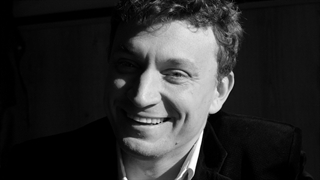
Ojasaar Yrjö
Text: Evelina Kutkaitytė
Last month the annual Baltic Dynamics conference invited innovation supporters from around the Baltic Sea to Tallinn, Estonia.
Estonia’s president, Toomas Hendrik Ilves, opened the conference emphasising the importance of Baltic cooperation. “The Baltic States make huge impact to EU economy as well as help withstanding the business competition with the bigs like China”, said the Estonian president, who also is the initiator of EU’s Baltic Sea strategy.
According to the president, the findings of Baltic Dynamics conference should be presented to the Baltic governments. The bureaucracy level in Estonia makes it almost 3 years to get business support from the state thus the companies prefer working on their own. Similar conditions are observed in Latvia and Lithuania.
Despite all independent efforts to survive in the market, today‘s businesses show lack of knowledge and creativity. Why Apple was so successful? Because it combined technology and design.
Wed, 14th September, 2011 - Posted by - (1) Comment
SEMINAR:
Enterprise management in unstable economy:
What is important for you as a manager to know?
Hotel Villon le Meridien, 29 September, 9 a.m. – 5 p.m.

By Ulf Hallan, President of European Leadership Institute
If you are going to participate in one seminar this autumn, let it be this one. Not for yourself, but for the future of your company!
The dark clouds are arising again over the World Economy. Uncertainty and fear of the future do not only scare the World Leaders. They are trying to act now to save us from a new recession.
This situation does not only call for action from politicians. You, as a manager have a responsibility to make the right decisions now for your company.
But what are the right decisions? Should we cut costs or invest? Should we downsize or expand? What are the most necessary actions to be taken by you as a manager in the current situation?
Some say that the biggest sin a manager can commit is doing nothing. Your actions today have their consequences a year from now. And maybe in two and three years.
Tue, 5th July, 2011 - Posted by - (3) Comment
|
|
Professor David Passig at the ’World Lithuanian Economic Forum (WLEF)’: The dawning of a new civilization
|
“Brain power – knowledge, skills, and human personality quirks – will combine with computer power in order to think, reason, communicate, and create in ways we can scarcely even contemplate today.”
See Professor Passig’s WLEF slideshow here: http://www.passig.com/vault/presentations/TechSingularityEng_Short.pdf

The futurist Ray Kurzweil is one of those Professor Passig refers to when explaining the theory of ‘Singularity’.
In his presentation at the World Lithuanian Economic Forum, Professor Passig also referred to the futurist Ray Kurzweil, who defines the concept of ‘Singularity’ in terms of the technological creation of superintelligence, arguing that it is difficult or impossible for present-day humans to predict what a post-singularity world would be like, due to the difficulty of imagining the intentions and capabilities of superintelligent entities.
Kurzweil believes that we're approaching a moment when computers will become intelligent, and not just intelligent but more intelligent than humans. When that happens, humanity — our bodies, our minds, our civilization — will be completely and irreversibly transformed. He believes that this moment is not only inevitable but imminent.
According to his calculations, the end of human civilization as we know it will take place around year 2045.
The Singularity is an era in which our intelligence will become increasingly nonbiological and trillions of times more powerful than it is today—the dawning of a new civilization that will enable us to transcend our biological limitations and amplify our creativity.
|
Technological singularity refers to the hypothetical future emergence of greater-than human intelligence. Since the capabilities of such an intelligence would be difficult for an unaided human mind to comprehend, the occurrence of technological singularity is seen as an intellectual event horizon, beyond which the future becomes difficult to understand or predict. Nevertheless, proponents of the singularity typically anticipate such an event to precede an "intelligence explosion", wherein superintelligences design successive generations of increasingly powerful minds. The term was coined by science fiction writer Vernor Vinge, who argues that artificial intelligence, human biological enhancement or brain-computer interfaces could be possible causes for the singularity. The concept is popularized by futurists like Ray Kurzweil and widely expected by proponents to occur in the early to mid twenty first century. |
Mon, 27th June, 2011 - Posted by - (0) Comment
|
|
|
You are cordially invited to the 33rd Annual Adizes International Convention which will take place in the Hotel Le Meridien in Vilnius 30 June – 2 July. The convention is a good opportunity for all of the different individuals and organizations that have applied and benefited from the Adizes methodology to come together. The convention will explore the latest advancements in the theories, practices and applications of the Adizes methodology.
The conference will commence at 6:30pm on June 30th with the convention’s opening dinner. On July 1st, Gintaras Steponavičius, Minister of Education and Science of Lithuania will open the convention with a welcome address.
Other programme highlights will include the founder’s session. Ichak Adizes, Founder of the Adizes Institute and the Adizes Methodology will present the latest illuminations from his personal and professional journey over the past 12 months. Additional speakers will include Adizes Associates, students at the Adizes Graduate School, Adizes clients, and other individuals who have applied the Adizes methodology in their various disciplines.
The Adizes Annual Convention will for the first time take place in Lithuania.
More information about the event you can find at the following link: http://convention.adizes.com…
Wed, 4th May, 2011 - Posted by - (1) Comment

By Arturas Bakanauskas
This became important a few years ago after the deaths of a number of girls, many in Poland, after teasing, or worse. The problem had not existed under the Soviet regime, or had been considerably smaller. But then the environment had also been considerably different: cartoons taught moral values, the authorities were charged with creating a single state (and so did not tolerate nationalism or anything that might be seen as promoting fragmentation), in the absence of money, friendship was the coin of the day, etc.
But after the deaths of these girls, measures started to be taken to avoid such deaths in Lithuania. One of these is a springtime voluntary intolerance-education week, which seems to focus on the thought that being called names does not feel very good. But this stimulus has apparently also been a curse, since I have seen a reaction only to those actions which caused the deaths, and not to intolerance as a whole.
Wed, 12th January, 2011 - Posted by - (21) Comment
Many reforms are needed in Lithuanian higher education. Changes in the elementary and secondary levels are not considered here. By and large, these sectors, though delinquent in teachers’ salaries and school infrastructure, do prepare students reasonably well for their futures with rigorous and disciplined instruction. The need for change is noted by visiting volunteer groups from the U. S. and Canada, working with Lithuania’s teachers on continuing education programs. Students who complete the elementary and secondary levels do well when studying abroad, but are short changed in their higher education. We propose urgent reforms and major changes to this postsecondary level. Reforms in higher education must give serious priority to four areas: adequate financial resources; curricular changes to create a better system for imparting knowledge; outreach, wider service areas and new learning centres; and productivity and excellence in creating and imparting new knowledge in school and on the job…
Wed, 12th January, 2011 - Posted by - (2) Comment
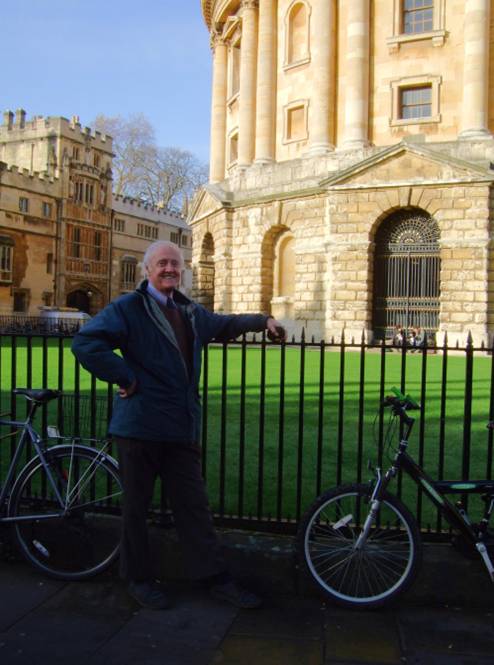
Mervyn Bedford at one of the many Oxford landmarks of higher education.
Because I know Aage Myhre and his wife and very much respect what he is trying to do for Lithuania, I offered to write of educational values for the new version of VilNews. The Baltic nations have a perfect opportunity to change the map of educational provision in ways that better fit the rapidly changing world of the 21st. century. Education is not about buildings. It is not about systems and organisations. It is not about tests and inspections. It is about people and the relationships between those who want to learn, or need to learn, and those who already know it. For almost 150 years State school systems have imposed a model of teaching and learning that has hardly changed while society has fundamentally changed and, recently, very rapidly. Those changes are racing unseen towards our youngest children.
VilNews e-magazine is published in Vilnius, Lithuania. Editor-in-Chief: Mr. Aage Myhre. Inquires to the editors: editor@VilNews.com.
Code of Ethics: See Section 2 – about VilNews. VilNews is not responsible for content on external links/web pages.
HOW TO ADVERTISE IN VILNEWS.
All content is copyrighted © 2011. UAB ‘VilNews’.